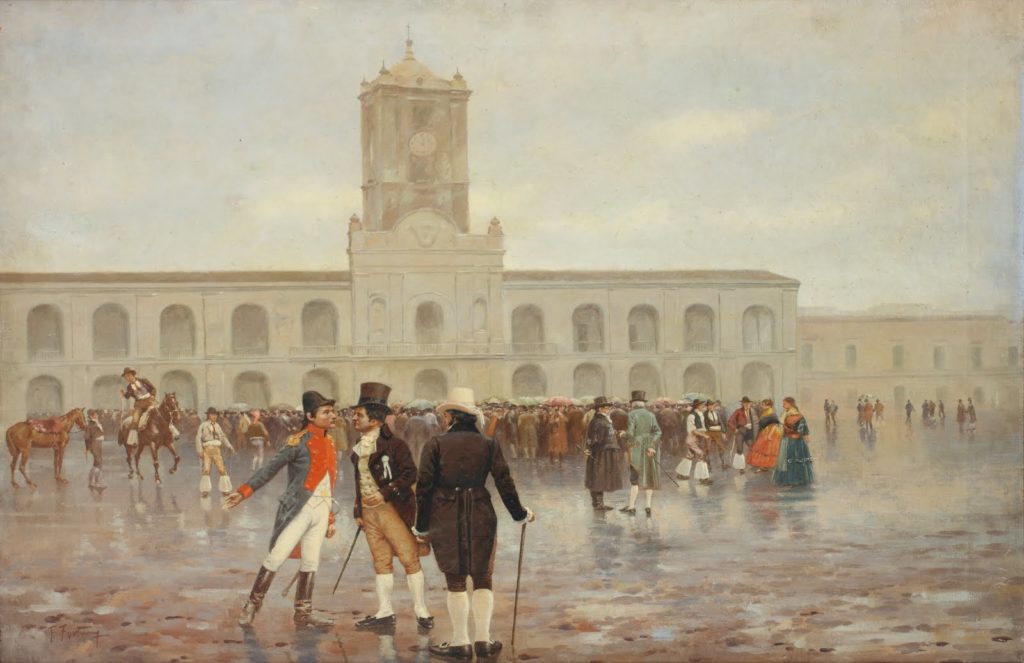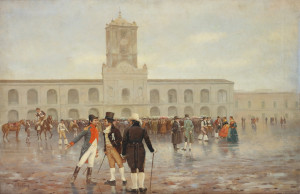
In May 1810, after learning that the Spanish authorities had been deposed, it was understood that authority should rest with the people. The hour of independence had arrived. It was at that moment that the then Lieutenant Colonel Cornelio Saavedra announced: “Gentlemen, now I say that it is not only time, but that you should not lose a single hour of time” (sic).
On May 20, Viceroy Cisneros decided to summon the commanders of the capital’s bodies to find out if they were willing to support him, as they had done in 1809, in the event of a local convulsion. The answer was categorical. It was then, precisely, when Cornelio Saavedra, on behalf of all the other chiefs, said: “Sir, the times of January 1 of year 9 and May 10 of which we are are very diverse. No sir, we do not want to follow the fate of Spain, nor be dominated by the French, we have resolved to resume our rights and preserve ourselves. The one to V.E. gave authority to send us no longer exists. Accordingly, V.E. he does not have it either, so I do not have the forces of my command to sustain him ”(sic).
The events accelerated and on the 22nd the Open Cabildo took place, in which the people voted for the cessation of the viceroy in his functions and his replacement until a governing board was appointed, which would be integrated by popular decision. Among the notable neighbors invited by the Cabildo to attend the congress held that day, were several officers of the Patricio Legion. It was they who, along with numerous patriots, voted for the expiration of the viceroy’s authority and the formation of a popular government.
The next day, the Cabildo, with a clever maneuver, tried to nullify what was voted on the 22nd and ordered that Cisneros himself continue in the exercise of power, presiding over a governing board, whose members made Saavedra appear.
On the 23rd, the viceroy himself, cautious, wanted to know previously the decision of the body chiefs, who declared that only the agreed side should be made public and that, if it was not done, the people’s discomfort would not be quieted.
On May 24, the Cabildo tried for the last time to hold ex-viceroy Cisneros in office, and maintain his privileges and income. When public discontent arose over the useless delay in deciding the form of government that would ensure the definitive triumph of the great cause, the Patricios barracks became the meeting place for the patriots. In the midst of that scenario of exaltation, the spirits of the most resolute were tempered, assuring them that the next day an exhortation would rise to the Cabildo to demand compliance with the will of the people, so unequivocally expressed.
Finally, May 25 arrived, and with the first lights of that historic day, the people resumed their determined and belligerent attitude to resolve the situation by meeting in front of the Cabildo in the Plaza de la Victoria. Later the news of the triumph of the revolution would be heard from the lips of the patriots.
The Regiment of Patricians had a preponderant performance: it became the support of the emancipatory movement; it was the verve of the May Revolution.
The position of the Creoles, their decision, and their direct threat ended with the maneuvers of the Spanish peninsular lobbyists, who had lost authority in the hands of Saavedra with his Patricians, the other Creole regiments and the people. The great popular demand was based at all times on that Creole body and it could be affirmed that, without it, without its decision, the revolution would have been delayed.
In his Memoirs, Saavedra expresses that, for this achievement, those men did not measure the risks of their lives, their family, or their particular interests. They acted with confidence in their strength, in their proven courage, and in the justice of the cause of American liberty.
